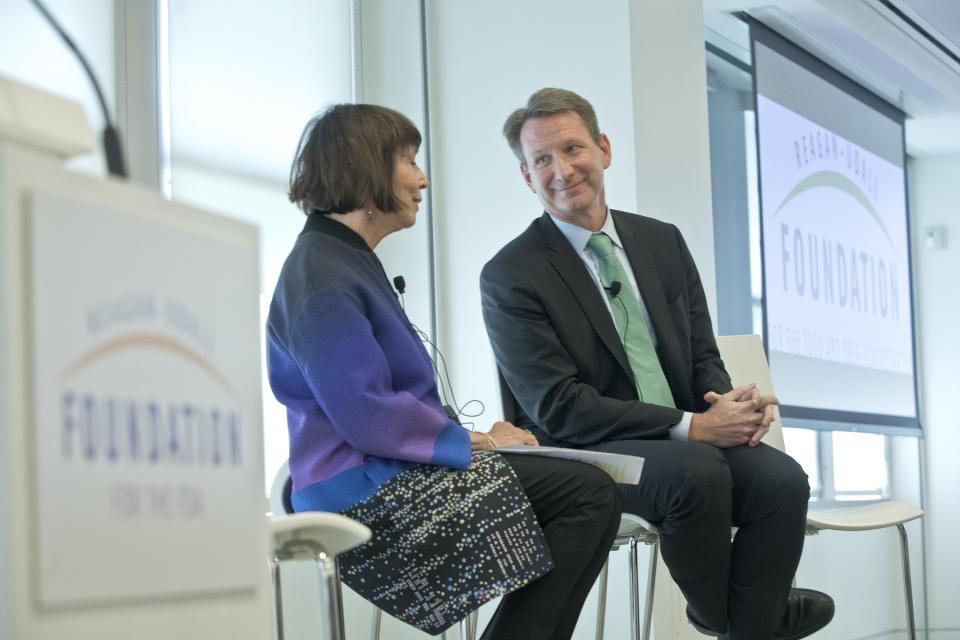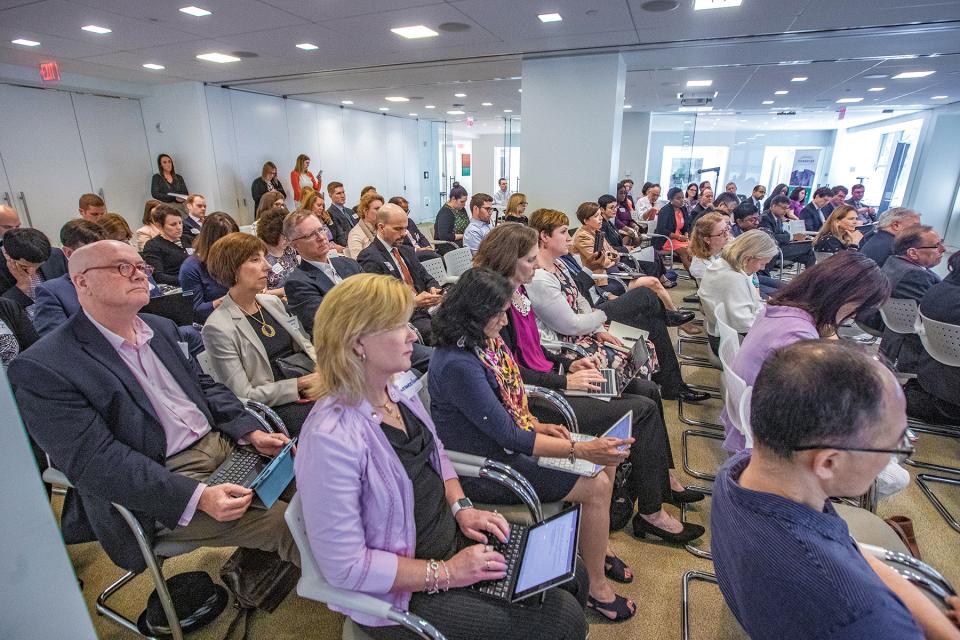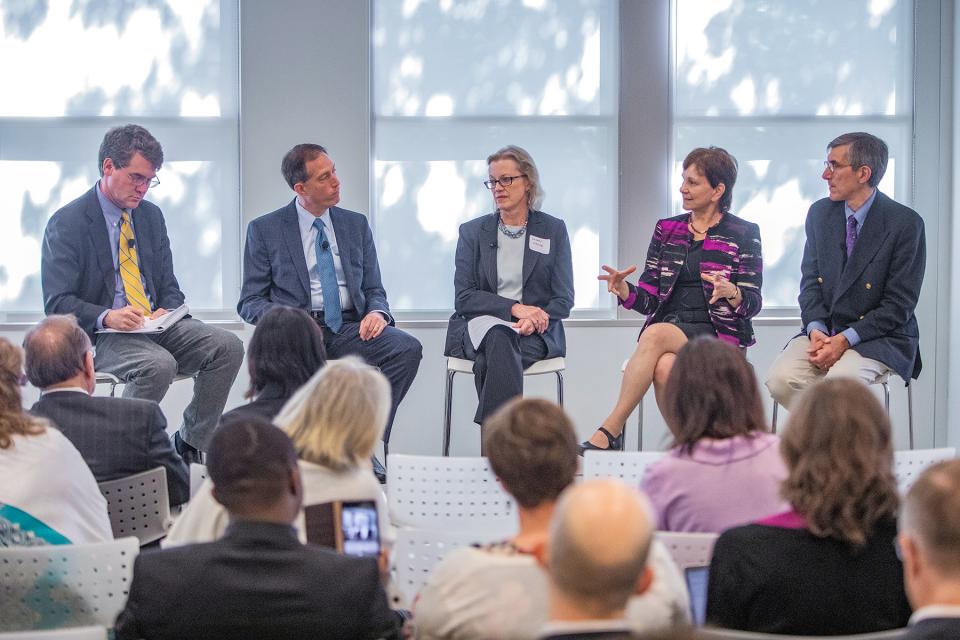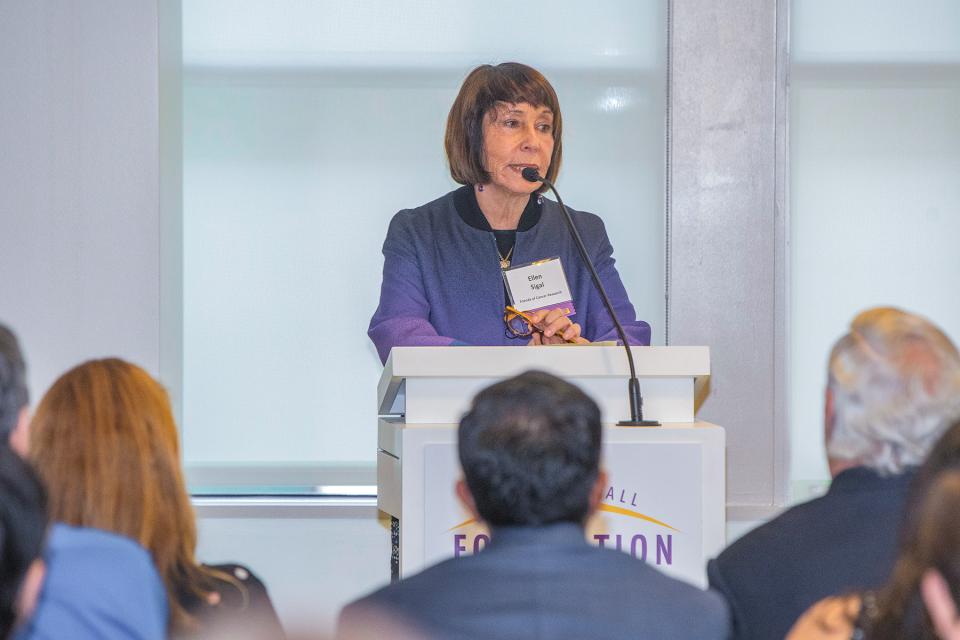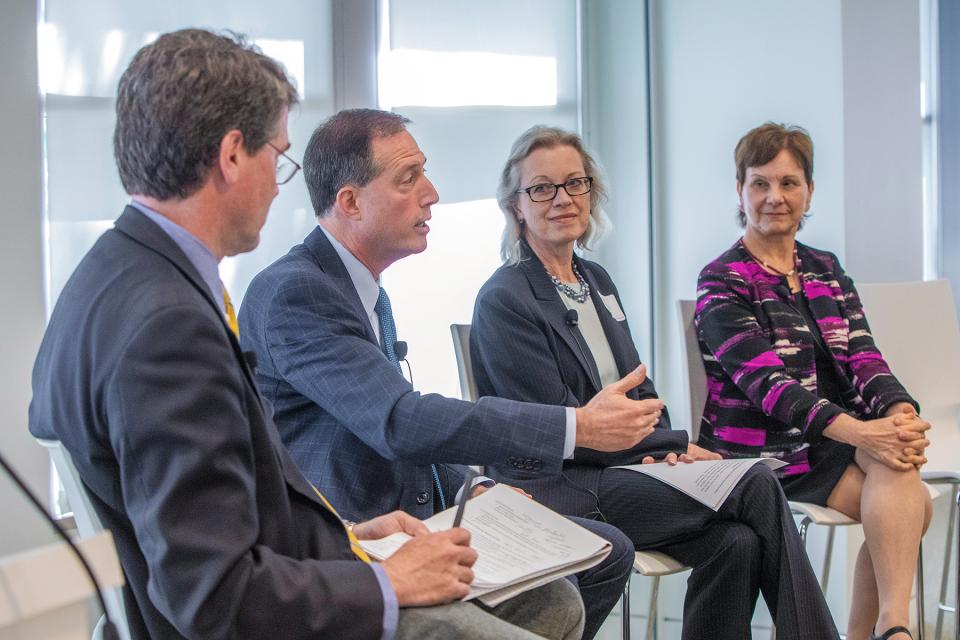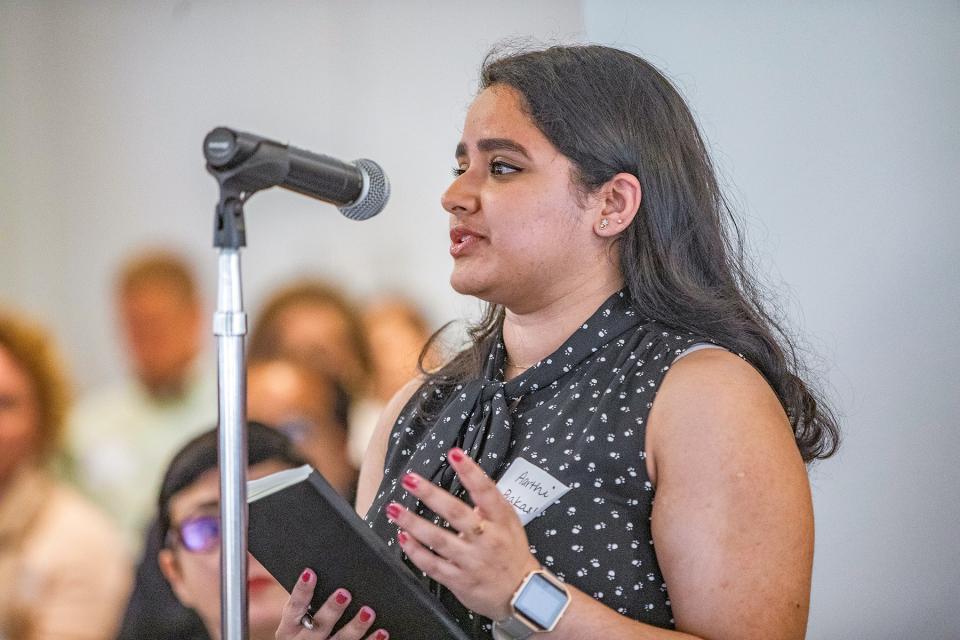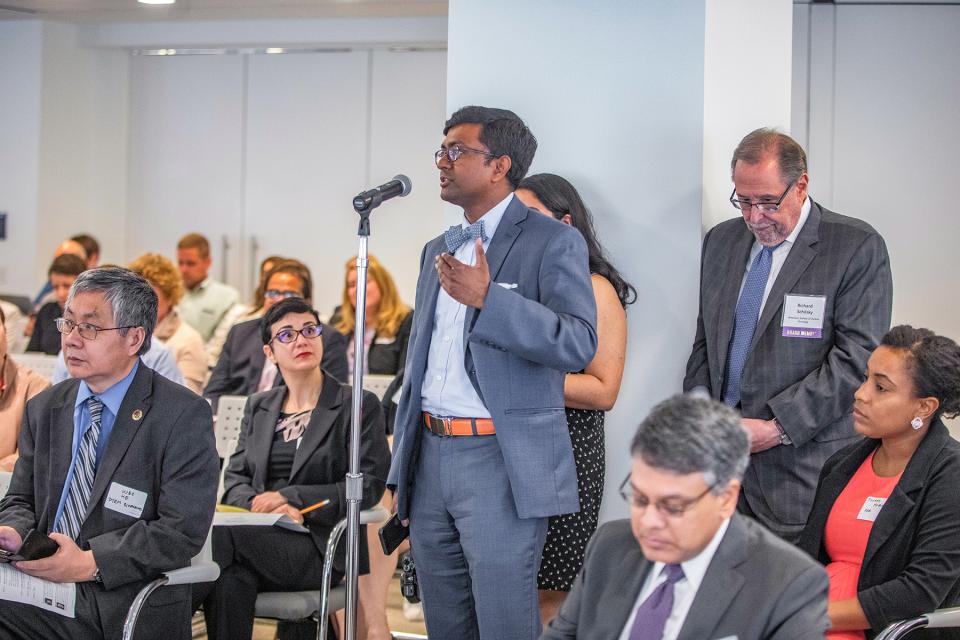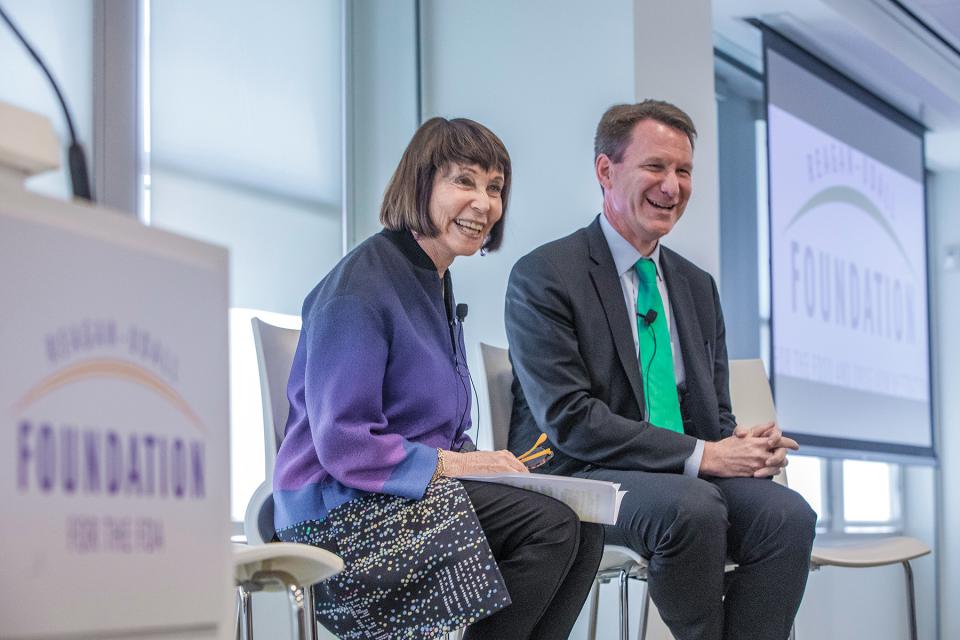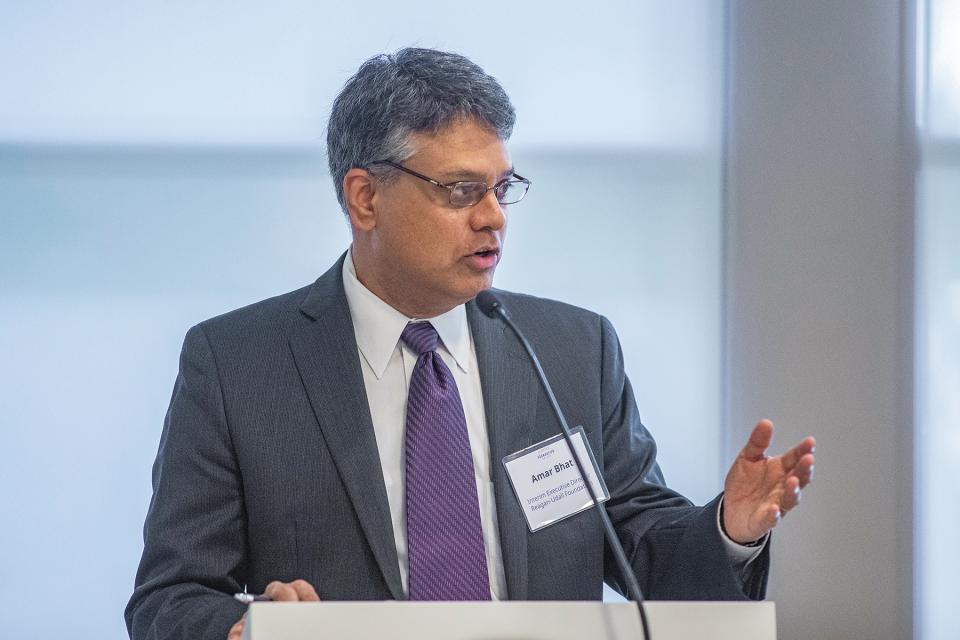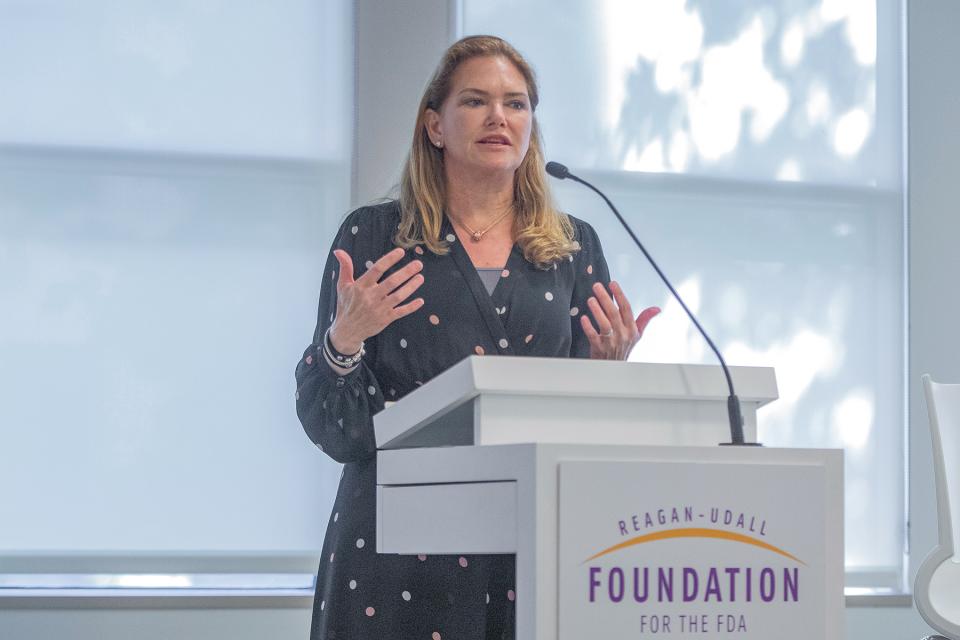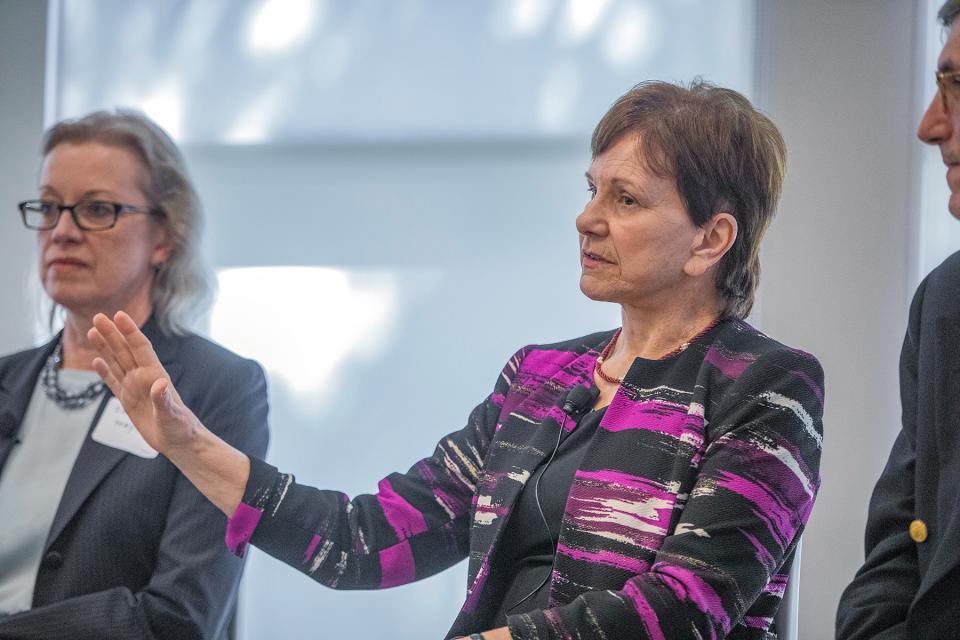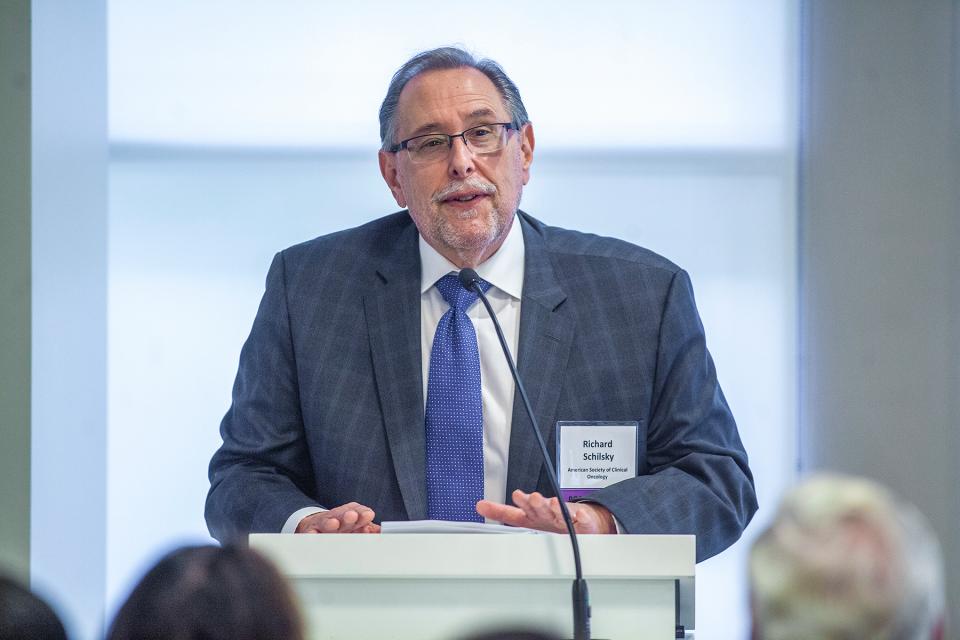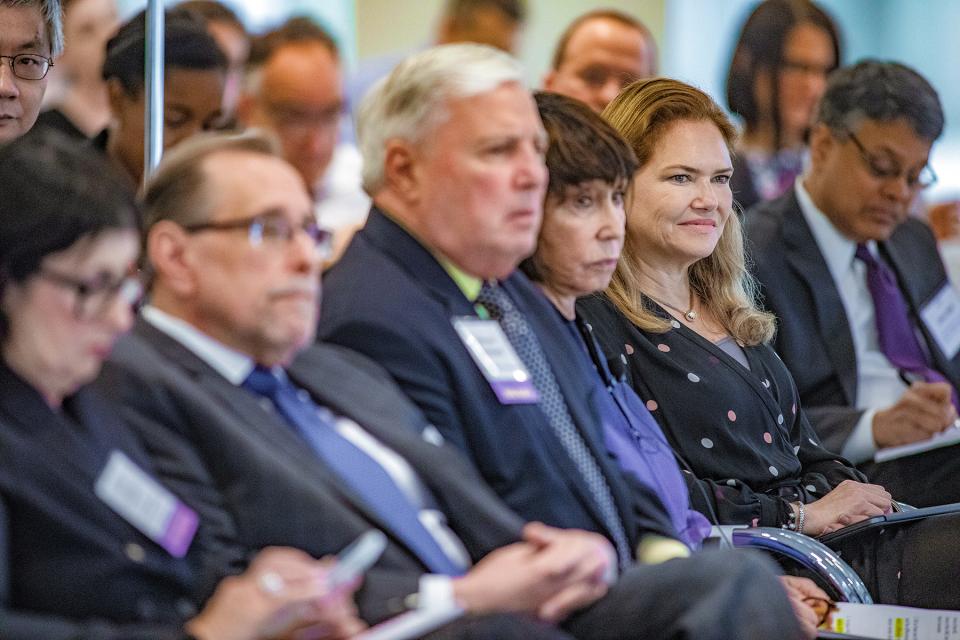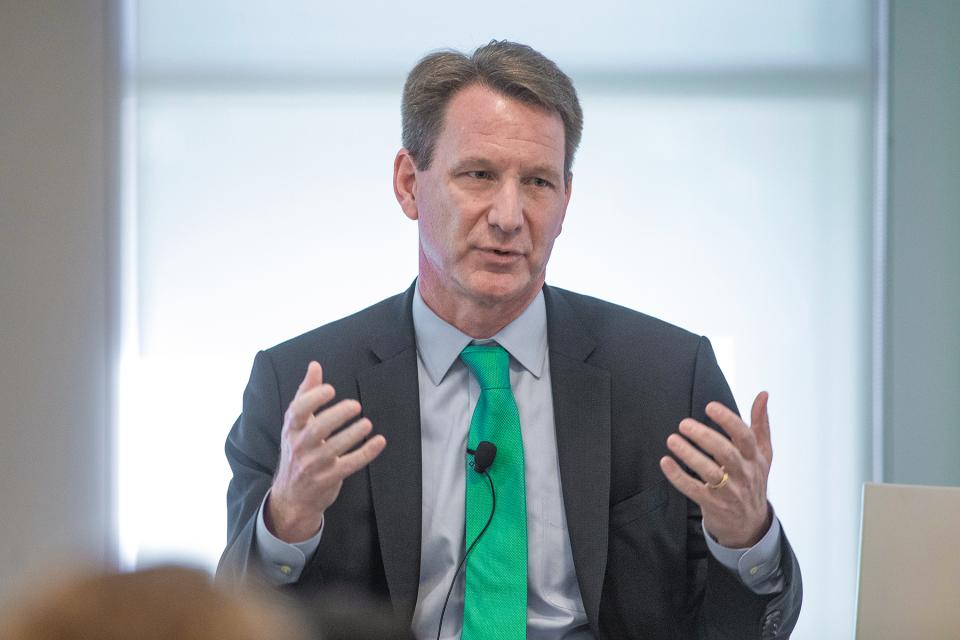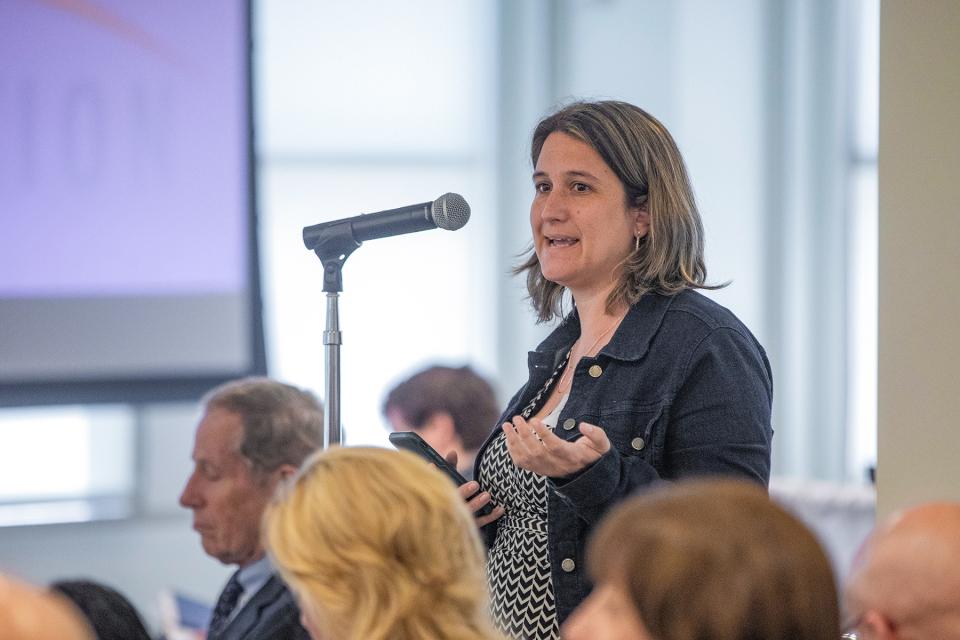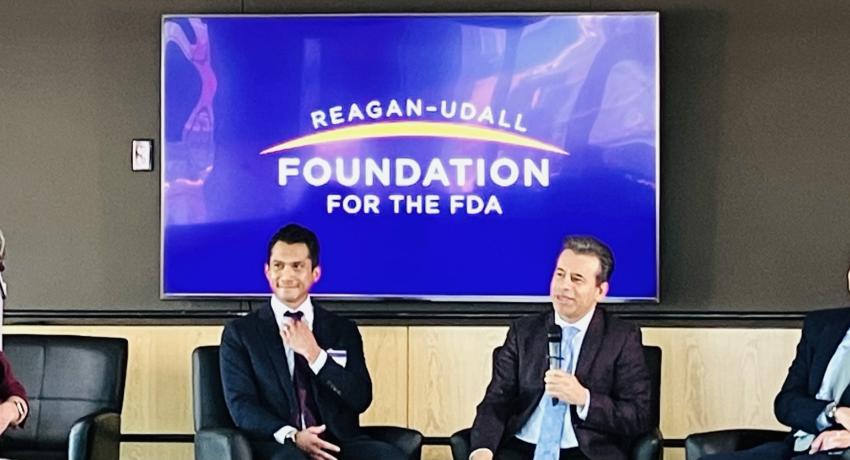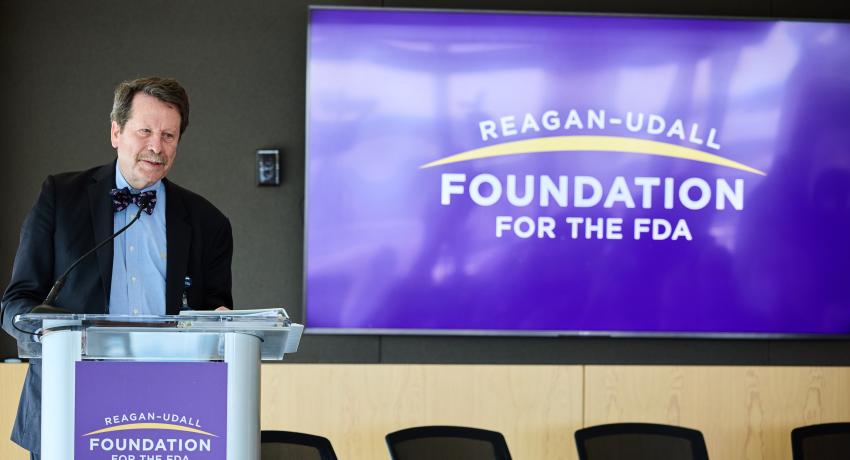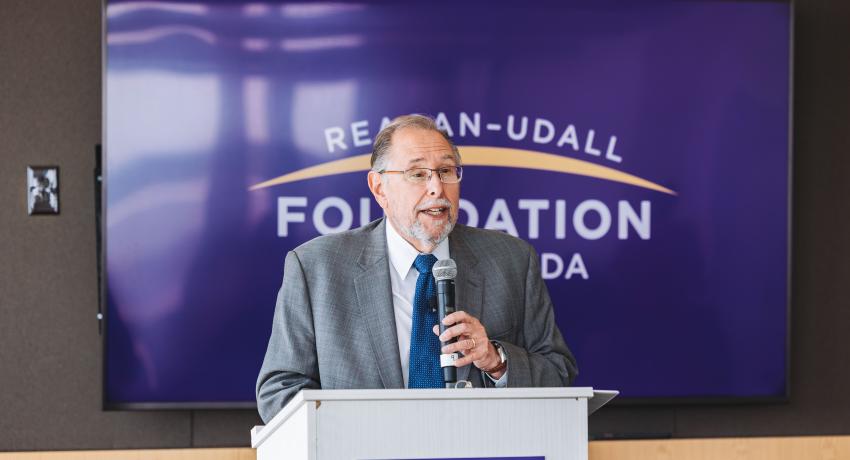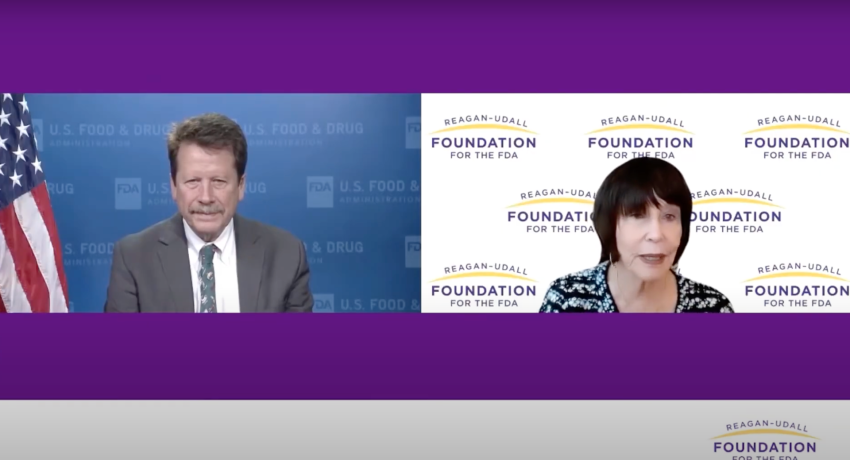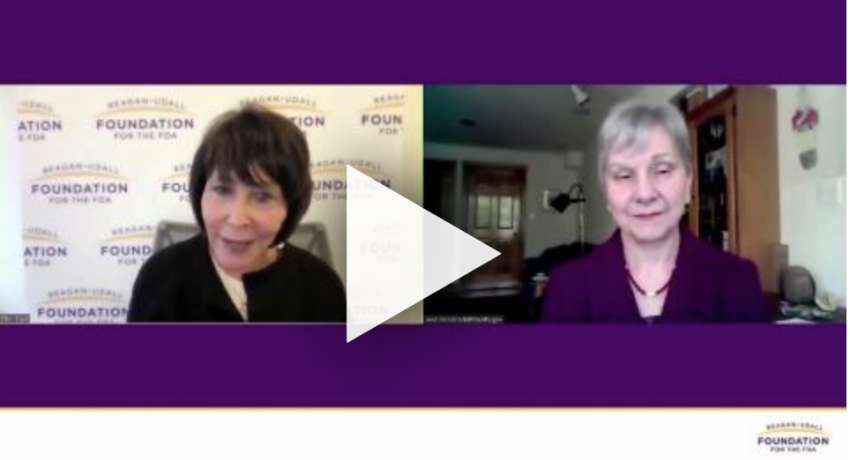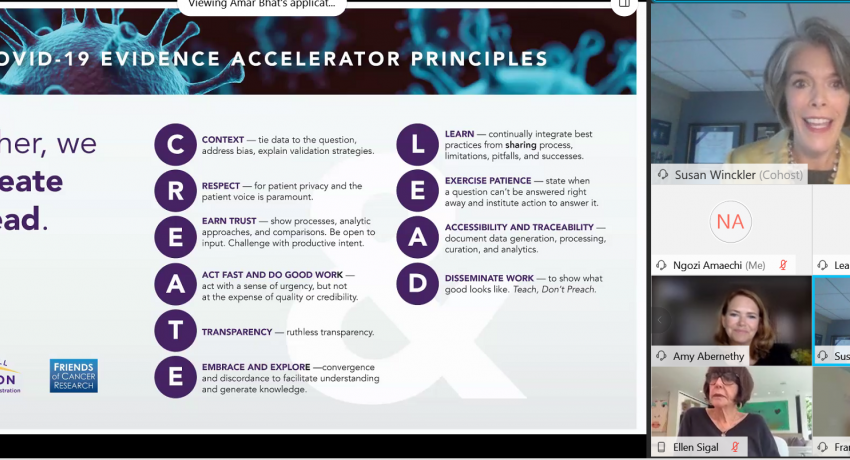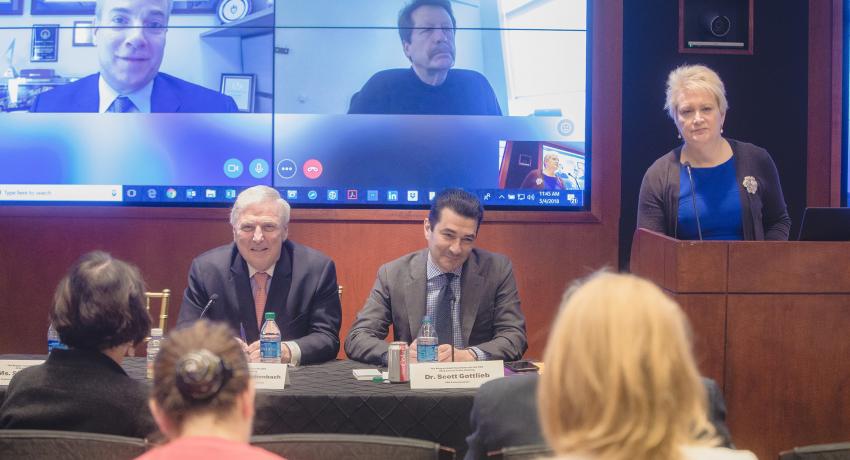2019 Annual Public Meeting Highlights
Science is evolving rapidly, and fast-paced innovation is impacting every level of public health and safety. No single agency can stay ahead of the changes without partnership, so the Reagan-Udall Foundation for the FDA drew together nearly 150 regulatory stakeholders to explore the needs and opportunities for public-private partnerships during our Annual Public Meeting on May 2, 2019.
Proving to be both informative and insightful, the one-of-a-kind discussion included senior FDA officials Dr. Norman "Ned" Sharpless, Acting Comissioner of Food and Drugs; Dr. Amy Abernethy, Principal Deputy Commissioner and Acting Chief Information Officer; Dr. Peter Marks, Director of the Center for Biologics Evaluation and Research (CBER); Dr. Susan Mayne, Director of the Center for Food Safety and Applied Nutrition (CFSAN); Dr. Jeffrey Shuren, Director of the Center for Devices and Radiological Health (CDRH); and Dr. Janet Woodcock, Director of the Center for Drug Evaluation and Research (CDER).
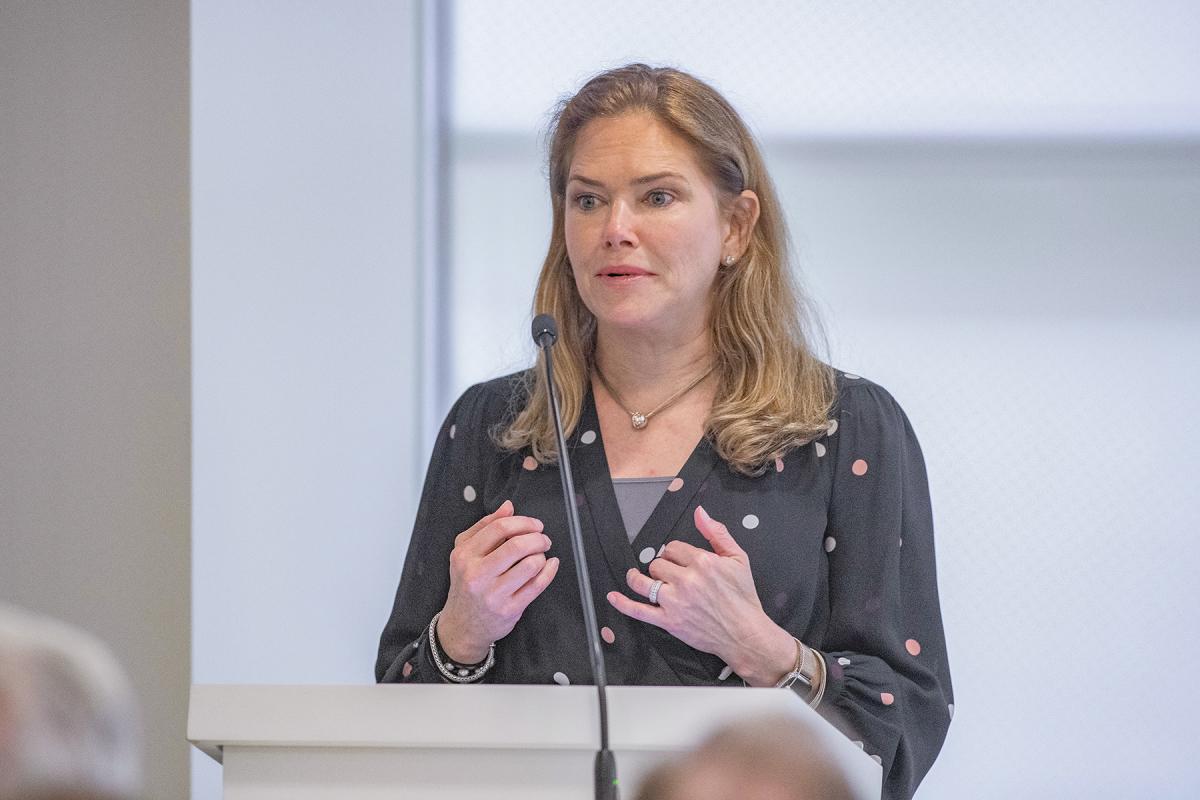
Launching the conversation, FDA Principal Deputy Commissioner Amy Abernethy spoke of FDA’s responsibility to “set the vision for the future” and ensure we have “all the stakeholders that we’re going to need to …make sure regulatory science moves forward the way we need it to.” Abernethy called on her colleagues to leverage the opportunity to "bring ideas for the Reagan-Udall Foundation to carry forward," stating that regulatory leaders need to engage in such collaboration across centers and across stakeholder groups. Abernethy stressed the need for FDA to have a "forward-leaning point-of-view," working with the Foundation and others to regularly address key questions such as
-
What will the future look like "not just two years but twenty years" from now?
-
Who is missing from the table who can help solve problems?
-
What do we need to build now to achieve the vision of the future?
One clear priority that drives Abernethy is integrating technology into health, so FDA can set the “technical and data vision of the future to be in lockstep with the modern evidence-development spectrum."
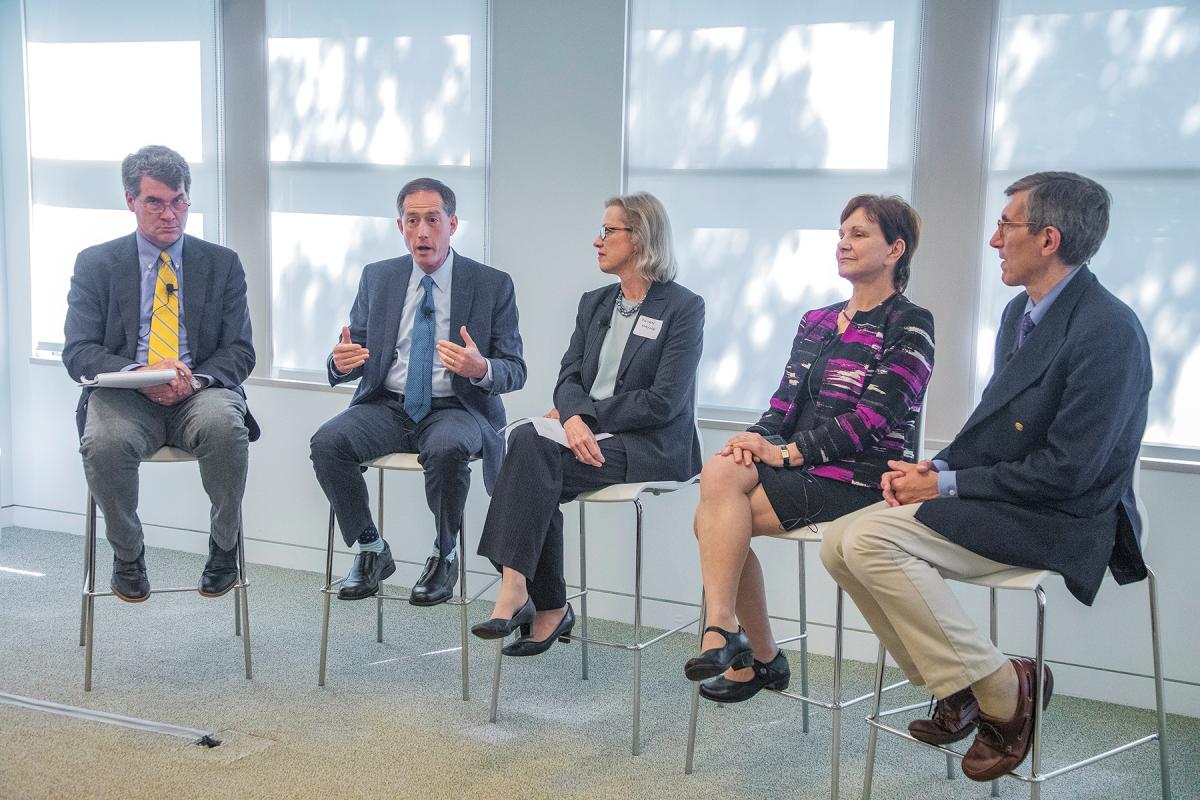
Panel moderator Michael McCaughan of Prevision Policy, LLC welcomed four FDA Center Directors, calling it "phenomenal" to have them all on one panel.
As a group, the Directors echoed Dr. Abernethy's commitment to stakeholder engagement, and also prioritized the role of education in improving public health. “We need to increase science literacy for the public," said Dr. Mayne of CFSAN, emphasizing that education can help consumers understand new tools and "mitigate the often-stigmatizing perceptions of new technologies."
Directors outlined how education and stakeholder collaboration are especially necessary in rapidly evolving and sometimes expensive areas, such as medical devices, cellular and gene therapies, drug characterization and dosing, and genetically modified foods. Mayne noted that in addition to sharing knowledge with academia and industry on big data, bioinformatics, foodborne outbreak detection, and other safety issues, CFSAN is updating food product labels for the first time in 20 years, requiring extensive education for consumers.
CBER’s Dr. Marks sees the field of cellular therapies "developing faster than the ability to develop regulatory capacity, to develop standards, and to develop the manufacturing capacity necessary to keep pace." He believes part of the solution may be engaging stakeholders in “less formal, less traditional public-private partnerships that can keep pace with development and new ways of acquiring information."
Dr. Woodcock of CDER agreed, stressing priorities such as “translational science and post-market areas, where learning from medical use with a rapid transmission of knowledge can help researchers and industry have ways to answer important questions about drugs.” She pointed to the Foundation’s expanding IMEDS program as an example of “building a national resource” with FDA that makes not only information, but tools and methodologies, available to stakeholders.
Another clear topic that crosses FDA Centers is real-world evidence (RWE). CDRH's Dr. Shuren emphasized that “technology can’t be put all in one box” as FDA and the field struggle with the “data quality and completeness challenges” of RWE. Shuren stressed the power and value of working in public-private partnerships, saying “technology is developing so rapidly that we can’t do it by ourselves – it doesn’t take a village but an ecosystem."
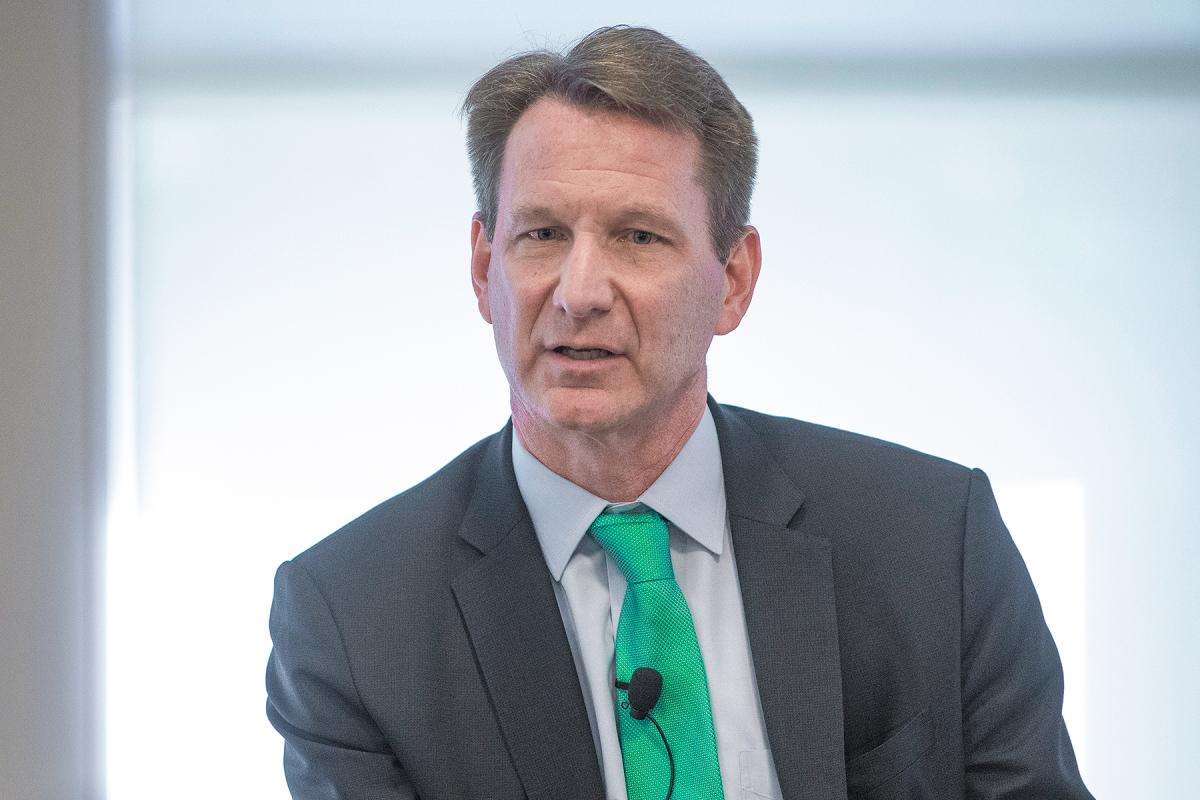
Foundation Board Chair Dr. Ellen Sigal interviewed Acting Food and Drugs Commissioner Dr. Ned Sharpless who says he looks forward to developing "robust collaborations" with agencies and emphasized his excitement at the possibilities to address rare diseases and public health challenges.
Drs. Sigal and Sharpless discussed barriers to sharing data with the public and other stakeholder groups, such as protecting proprietary information, with Sharpless stressing that “sharing data is hard; every data set is unique in how it is aggregated and interpreted." His goal is to address the challenge of RWE so that FDA’s work is fully informed by evidence, experience, and stakeholder input. “Yes, we have to do it in a way that is responsible, safe, and doesn’t endanger patient privacy or proprietary issues. But the good news is that people really want to do it.” Sharpless says while the focus at FDA may be on science and innovation, "we are putting patients first -- making that the driving priority."

